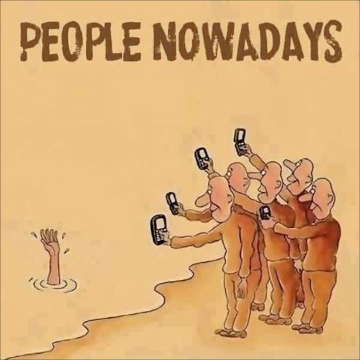Net neutrality is a war worth fighting for
November 16, 2016
Have you ever scrolled through your television’s guide and spotted something you wanted to watch, but after selecting it, you were notified that you needed to upgrade your plan to access the content? Has your cable or satellite provider ever cut ties with a station you wanted due to contract disagreements?
How would you feel about browsing the Internet and encountering a similar situation?
Imagine trying to reach your favorite online news outlet and getting blocked out by your Internet Service Provider (ISP) because it features opinions that your provider disagrees with.
Picture watching content on streaming services in slow-loading and grainy poor-definitions because your ISP does not have as good of a deal with the service as the competitor does. Consider not having access to the service at all.
If you are glad that this is not the current reality of our free and open Internet, you have net-neutrality to thank.
Net neutrality is the principle that ISPs should provide equal access to all facets of the Internet, and never manipulate transferred data or connections regardless of source or destination. In other words a neutral Internet is the Internet as we currently know it.
For many, an open and free Internet is a luxury that is too often taken for granted.
The United States is one of few countries that have passed net neutrality legislation. Until 2015, there were no laws stopping ISPs from activity that would compromise net neutrality in the US. In 2014, the Internet came close to a total reconditioning.
The Federal Communications Commission (FCC) found itself at a crossroads in May of 2014, when it considered the option of permitting “fast” and “slow” broadband lanes. At the same time, they considered the option of reclassifying broadband as a “common carrier,” which would keep our Internet neutral under existing laws. After an outcry from the public, and suggestions from President Obama, ultimately broadband Internet was reclassified and protected by neutrality laws.
The reclassification was a victory for the public and for Internet users all over the country, but a setback to companies who were looking to profit off of these broadband Internet “slow” and “fast” lanes.
Without net neutrality, ISPs would be able to give better and quicker access to services that pay them for these Internet “fast lanes.” On the flip side of this, smaller online destinations would be unable to afford these “fast lanes,” and user connections to these services would be slowed down or possibly even restricted entirely.
This would be detrimental to the Internet, and all kinds of services that utilize it. The only ones who would gain anything from a biased Internet would be the ISPs and big companies who could afford priority in the Internet “fast lanes.”
Thanks to broadband’s reclassification in 2015, Internet “fast lanes” were nothing to worry about, until now.
It was an uphill battle to maintain net neutrality, and unfortunately the fight might not be quite over yet. Obama fought for net neutrality, but a new president is on the way.
While the country shifts its focus to the slew of new policies that may come up under our new President-elect Donald Trump, net neutrality should not be swept under the rug.
Are there more pressing issues at hand? Certainly. However, the Internet has become a monumental part of human life. It forever changed the way that people send and receive information. It connects people from all parts of the planet with one another. It has revolutionized the world.
As for the future of net neutrality, all that we have to go on for now is one tweet from our President-elect:
“Obama’s attack on the internet is another top down power grab. Net neutrality is the Fairness Doctrine. Will target conservative media.”
One tweet could mean nothing, or it could mean everything. We have made it this far, so keep an eye out. Do not let net neutrality be swept away while we are not looking.
email: [email protected]













